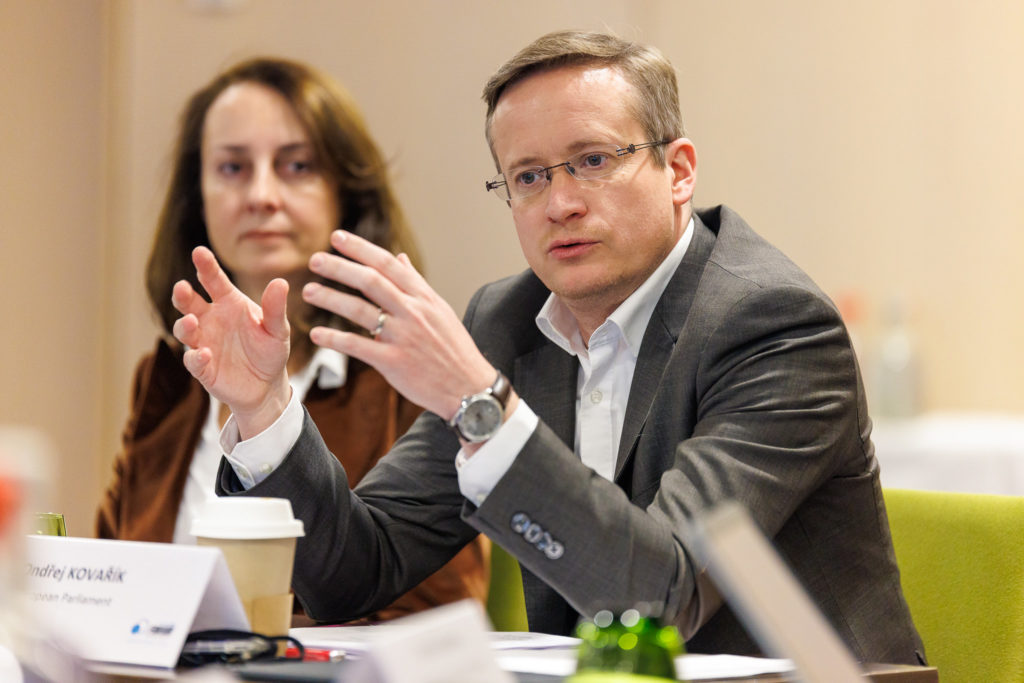Brussels, 7 December 2022 – Members of the Forum for Mobility and Society gathered in Brussels to discuss the Euro 7 proposal recently unveiled by the European Commission.
Newly appointed co-chair of the Forum, MEP Ondřej Kovařík, hosted the debate for the first time in this new capacity. MEP Kovařík set the scene with the overall climate neutrality ambition of the EU, mentioning the objective to improve air quality and the value of the Euro 7 proposal. He emphasized the urgency to reduce emissions, adding that the transport sector has a key role to play, and the necessary collaboration of all mobility stakeholders is needed.
Keynote presentations from the European Commission’s DG GROW and the Association for Emissions Control by Catalyst (AECC) were given at the start of the debate to provide background information and specific details of concern regarding the proposal.
Mark Nicklas, Head of the Mobility Unit at DG GROW highlighted that the Euro 7 proposal aims to be future proof. The proposal follows a technology neutral approach including requirements for all types of vehicles and fuels (e.g., petrol or diesel ICE, and EV), and has new emission standards that better reflect real-life conditions. Nicklas pointed out the extended coverage of the Euro 7 proposal which has requirements for brakes and tyre abrasion emissions, unlike past vehicle emissions standards adopted before. He also stated that the proposal would make better use of vehicle data to avoid tampering, as well as to facilitate compliance checks.
Pablo Mendoza-Villafuerte, EU Technical Affairs Manager at AECC presented in detail the variances between vehicle pollutants in their extensive testing programme. Through this, Mendoza-Villafuerte displayed the need for swift adoption of the proposal. He also emphasized that a holistic approach over the lifetime of the vehicle combined with a technology and fuel neutral strategy could deliver the best results in terms of emissions reduction.
Most members present at the debate were supportive of and strongly welcomed the Euro 7 proposal. However, certain stakeholders highlighted the need to consider the lead time between the proposal and its adoption – asking that ample time be given to fully meet all requirements from the EU, given the investment needed to meet them.
Stakeholders called for more transparency and guidance when it comes to safety and security of data processing in vehicles and tyres. For instance, what type of data will be collected from vehicles? Will geofencing measures be used? How will access to data be controlled to protect consumers from third-party abuses?
The question of international impact was also brought up, as the EU aspires for the Euro 7 to set the bar for future vehicle emissions standards in countries beyond Europe. Stakeholders remain optimistic but are aware of the different realities of standards enforcement in other parts of the world.
Members of the Forum expressed gratitude for the platform of exchange but more dialogue between stakeholders is needed for a future proof Euro 7 emissions standard.
About Forum for Mobility and Society
The Forum for Mobility and Society brings together mobility stakeholders from the industry and civil society. It organises regular debates on current mobility issues, actively involving European Institutions such as the European Parliament and the European Commission.
Contact
secretariat@debatingmobility.eu
